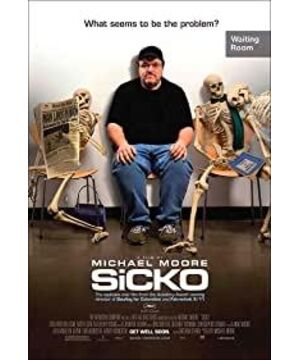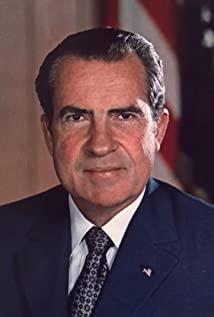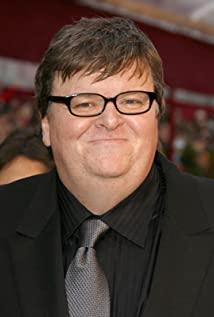http://www.impencil.org/Portal/pencilwork/20111205015337.aspx
Michael Moore’s documentary "SICKO" boasted that the UK’s National Public Health Service (NHS) system is very superior, everyone Equality, free for all, considerate medical services, and high incomes for medical staff... Is the
British medical system really that good? Is the socialist medical model really worth learning from the United States? Is the government takeover, overall planning, and rationing system more efficient than the "invisible hand" of the free market? Consumers’ free choice cannot play a role in this field to achieve effective resource allocation?
What is better and worse, let us see what the British think of the NHS system. A 2008 poll found that only 34% of British patients believed that the NHS system was superior.
The Daily Mail of London reported in 2007 that “more and more British people choose to seek medical treatment overseas in order to avoid the NHS system. This year, about 70,000 patients went out for medical treatment, a record high. "This summer, member of the European Parliament (Daniel Hannan) of the South East of England visited the United States. He warned the American people "Never follow the NHS. The NHS medical system is a sixty-year mistake."
“London Times” columnist Minette Marrin wrote: “According to a recent report, within ten years, there will be 200,000 Britons visiting doctors abroad. They even fly far. Malaysia and South Africa go for surgery to avoid the long wait and the C. diff infestation in NHS hospitals."
But why in the film "SICKO" we see that the hospital is clean and spotless, and the patients are talking and laughing. , The doctor is professional, and the nursing work is meticulous? You can't tell from this that the British people will be dissatisfied with the NHS.
It turns out that the documentary "SICKO" is not honest. Mr. Moore concealed many problems in the British public medical system.
When "SICKO" was in theaters, the British people also launched a fierce debate, "Whether the NHS is as good as the Americans say" and "Does "SICKO" truly reflect the current state of medical care in the UK". Therefore, BBC Radio Four asked the NHS supporter, Professor Robert Winston, a policy adviser to the British NHS, to ask what happened.
Professor Winston replied: “No, I don’t think so. Most of the films were shot in my hospital. My hospital (Hammersmith Hospital in West End of London) is a very good hospital in the UK and does not represent The situation of the
NHS system " What is the situation of the NHS system?
The NHS organization is very bloated. Its employee team even exceeds that of the national army, with 1.4 million employees, ranking third in the world! You know, the population of the United Kingdom is only about 60 million, which means that one out of every 60 people is an NHS employee.
Some people say, isn’t this great? Are there not enough medical teams in other places? The United Kingdom also has a shortage of medical staff. The so-called huge NHS team, most of which are not doctors and nurses who provide nursing care, but bureaucrats and managers. For such a huge national institution, the people also have medical problems.
There are nearly 850,000 patients in the UK waiting to be admitted to NHS hospitals. Under the publicly funded medical system, there is a shortage of medical teams, and 50,000 operations are forced to be cancelled every year. A survey by John Goodman, chairman of the National Policy Analysis Center, found that nearly 40% of cancer patients cannot get timely diagnosis by oncologists and delay treatment.
In May 2007, the BBC announced the waiting time for British patients, showing that 8 months for cataract surgery, 11 months for hip replacement surgery, 12 months for knee replacement surgery, 5 months for herniated disc surgery, and 5 hernia repairs. moon.
Not only that, columnist Minnart Marin said that many national hospitals are on the verge of collapse. Hospitals are short of funds, not enough beds, and poor sanitary conditions (severe Bacillus infections). Their nurses and cleaners have very low incomes, and they even resign collectively because of this, and they are unwilling to sell cheap labor. Young doctors are arbitrarily deployed by the government, completely disregarding the doctor's personal choice. The excellent doctors in the country have not yet worked, but foreign doctors are still influx. The management of the NHS system is terrible.
Daniel Hannan said that from the perspective of nursing effects, the relative cancer survival rate in the UK is lower than that in the US, and the waiting time is longer than that in the US. He said that the so-called free is not really costless. If the patient does not receive timely treatment, he can only consume it at home and cannot work. This is also a cost. When foreigners arrive in the UK, they are worried that they will get sick there.
The government takes over medical care, and the government pays for the bill is not without its cost. The government cannot operate like private insurance companies and private medical institutions. Private companies attach great importance to cost-effectiveness, potential risks, disease prevention, and service quality, which can be the key to sustainable business development. All government programs are inefficient in their implementation, and they are unable to control expenditures.
The various medical problems in the United States are not caused by the free market at all, but because they are not operated in accordance with the laws of market trading.
Commodity transactions are generally buyers and sellers, providers and consumers. For Medicare and Medicaid planned by the government, consumers are the people, but the payers are third parties—the government. The government encourages employers to buy insurance for their employees and provide tax reduction support. It is the employees who enjoy medical insurance, but the employer buys the insurance policy, and the insurer pays for the medical expenses of the employees, not the consumers themselves.
Originally, buying and selling was a matter of both parties, and it was a matter of mutual benefit, but the third party got involved. For example, marriage and love were originally a matter between couples, but now they must go through a third party—parents, which is troublesome. Negotiation is not a matter for both parties, it has become a matter for others.
The medical consumer feels that it is free anyway. Of course he is not worried about the cost. Since the buyer does not care about the price, is it not normal for the medical expenses to go up? Obama's health care reform requires employers to entrust and expand public health care. This is tantamount to carrying forward the third-party payment model. Can this reduce medical expenses? Dream it. Once the
NHS's terrible government rationing
, the government finds that medical expenditures are out of control and cannot continue to support it. It will inevitably reduce the supply through rationing. Government rationing is usually ruthless. A few days ago, the widely discussed "end-of-life consultation" and "death judgment desk" in the state-run medical reform, as well as the so-called "human salvation value", must have caused many terminally ill patients to sleep and eat.
Under the NHS system, British hospitals encountered insufficient funding and rationed them. The “Daily Telegraph” once reported that the NHS hospital refused to treat the eyes of an old hero of World War II because it had no funds.
The hero of World War II, Mr. Jack Tagg, suffered from age-related macular degeneration. If he did not receive the necessary injections, he would lose his eyesight for up to two months.
Mr. Tucker can enjoy publicly funded treatment, but the injection was rejected by the NHS. They said that the NHS would fund the injection only if Tucker went blind in one eye. The doctor gave him three choices: Either go with the flow and wait to be blind; either apply for funding, or pay for the injection yourself. For this reason, Mr. Tucker may have to sell the house shared with his wife.
Tucker's friend Martin Rankin (a general practitioner of Martin Rankin) sent an open letter to Prime Minister Brown, stating that "this is a model of your labor government's incompetence in managing the NHS." The letter read: "You may never have seen Jack and his lovely wife, but I tell you that he was born and died for us, and now you are in charge of the NHS, our patients think that you spend thousands of pounds for Jack is better than helping a family. Incompetent bank".
The open letter received a positive response from doctors on the website. 120 doctors signed a protest, and each sent a £5 check to Brown, saying, "Since you are not competent to manage the NHS work, we are not too difficult for others to ask for the so-called NHS for Jack. Healing, we only need you to transfer all the money to Jack for medical expenses."
May I ask what is so good about the NHS?
View more about Sicko reviews











